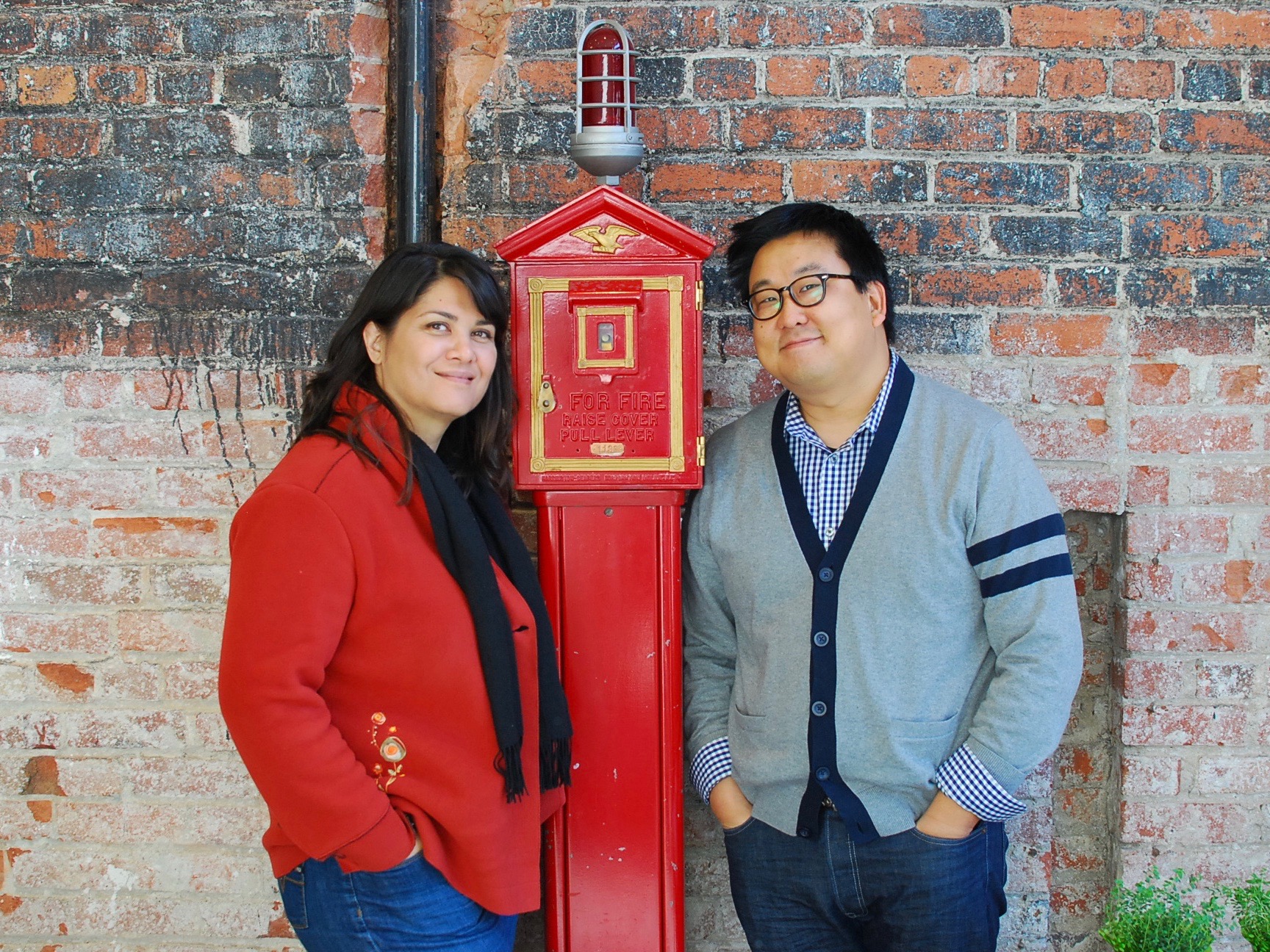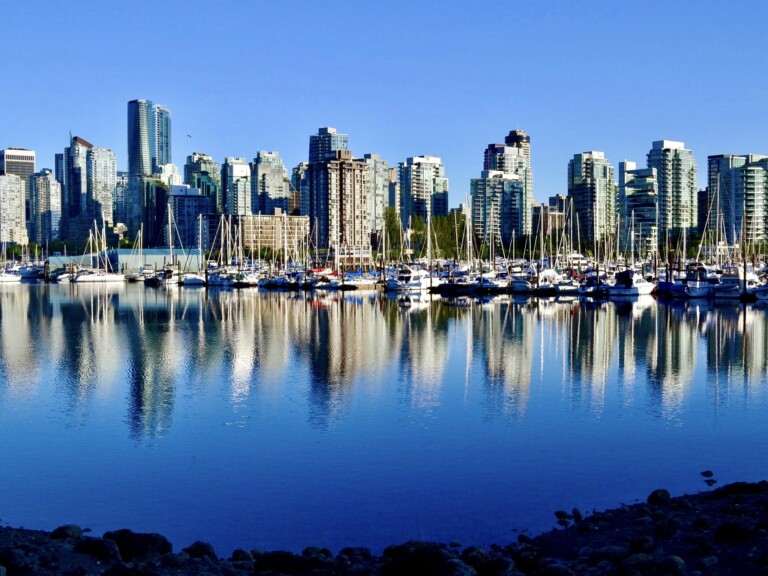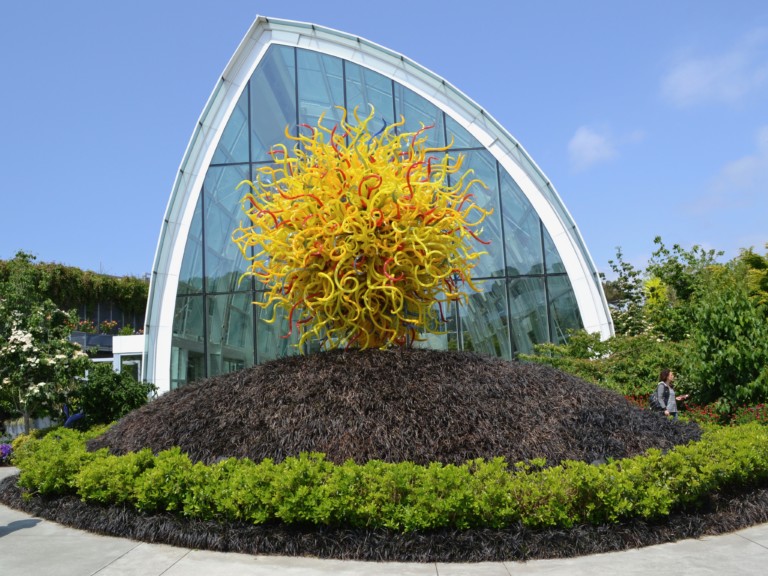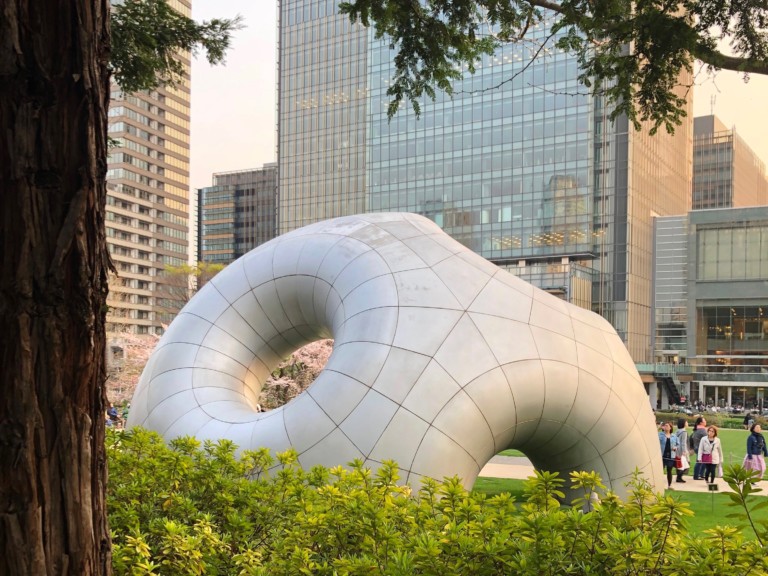INTERVIEW CONTINUED FROM PREVIOUS PAGE
What will it take for you to consider Wrecking Ball a success?
Cho: That’s a great question. In a way it’s a success now.
Rothgeb: There are different tests for it. One would be that it not only turns the corner and breaks even, but pays our bills and supports a nice group of people in jobs. We’re liberals and like the idea of being job creators and making lives for people. The other thing would be, for me, I’m really concerned about – for example, you had a coffee – I’m really super concerned, how did it taste? Am I tasting some paper in that? Did it taste a little bit tired? I’m worried about the roast. That’s never going to end.
Did you think about that when you’re not in your coffee bar too?
Rothgeb: Yeah, and I travel a lot. It’s part of how we bring in some revenue. I have a job where I go out and I teach and travel and teach people tasting coffee and coffee concepts, other professional coffee people. I’m not here, so why that’s why this is a good partnership. Nick is hyper critical as well of our own product. If the apprentice is roasting coffee that week instead of me, I’m super concerned, wondering and hoping it will go well.
Cho: For me, success is really defined most specifically by having a strong and healthy staff, people and culture. That was something that was really important to me at Murky Coffee. It was actually the most important thing, I would say, and in a way, it’s the most important thing for us here too, this idea of being able to work with people that not only work hard, but to be able to mentor and nurture them, and ultimately, find good opportunities and jobs for people.
When you’re hiring somebody to work for Wrecking Ball, how do you gauge those characteristics?
Cho: It’s really about personality. My interviews are really conversations with people. I don’t ask them questions that are going to be revealing. The conversation itself is just always revealing. I look for things like intuition and a genuine earnestness, sense of humor, intelligence, and curiosity’s important, but ultimately, the people I think would be able to share in our desire and vision for giving people coffee, because we want to give them something great, and they deserve it.
How much more room for growth is there in San Francisco, and how do you fit into the San Francisco coffee culture?
Rothgeb: As far as coffee shops are concerned, I personally believe that you can grow or shrink as a roasting company, but so long as you have a thriving retail outlet, you’re still a coffee company. I’ve seen that happen with different coffee companies around the United States. They’re grown and shrunk and grown and shrunk, depending on how the times are, but if they have a shop that serves the neighborhood, they’re good. With that in mind, we believe there’s even room in Seattle, and even room in Portland, and even room in any neighborhood that doesn’t have a coffee shop. The trick for us is to find spaces in San Francisco, or in the greater Bay Area, that feel underserved to us, or have a greater concentration of people that want coffee, and whenever anything starts up, it sets it off. Neighborhoods are looking to turn from being sleepy to being thriving, and coffee shops are always a factor in that. Any number of neighborhoods in San Francisco either have tired coffee concepts that need to be jeujed up a little bit, or they’re totally lacking in good coffee shops. While we may or may not ever look towards Mission, which seems totally well served – and we’re big fans of those coffee shops down there – and they’re looking to move out as well, we know, we’re happy to look at other neighborhoods in San Francisco. We think this is a good neighborhood. We know of another place that’s going to open up in a little while, near us, that’s only a good thing. Coffee shops are about finding the neighborhood that needs you.
Cho: There’s no such thing as saturation, not here. Maybe a place like Seoul, Korea, then we can maybe start talking saturation.
Really?
Cho: Yeah, it’s crazy. Here, it’s far from it. I think the idea is there’s a certain upper echelon coffee company. Eventually, that’ll prove to be a phase, because that’s not what coffee is. Before, we were talking about our coffee philosophy. Another thing I didn’t get to say was that, the way I feel Trish and I look at coffee, we start at understanding the way coffee fits into people’s lives, and starting by respecting that. The idea that we’re going to redefine and transform and elevate and whatever, that’s all fine as long as you’re ultimately rooted in the way people engage coffee, what coffee means to them. It’s a fantastic responsibility to be a part of someone’s daily life and daily ritual, that way. But if you don’t think of that as being a privilege and an honor, and instead an opportunity to subversively transform them and brainwash them into being one of us, someone who gets it, I understand that motivation, but that, to me…
Rothgeb: Most people in the world just want a really good cup of coffee, and they’re happy if you know a ton about it, but they don’t have to hear it every day. They just already decided you’re a good cup of coffee. Beyond that, it’s not as important for everybody.
So trust.
Cho: Yeah, trusting in the coffee.
What’s a typical coffee consumption day for each of you?
Rothgeb: I don’t drink as much as I used to, when I was younger. And sometimes I have very heavy tasting days, but as you may or may not know, that involves a lot of tasting and spitting. I must have at least one cup of coffee a day, or I get the caffeine headache. Very honestly, and Nick is less addicted chemically to coffee.
Cho: I’m not really a coffee drinker.
Rothgeb: He says that. He enjoys it, but it’s not a mandatory thing.
Cho: Defining coffee drinker as someone who wakes up and has to have a cup of coffee, in that sense, I am not one of those people. I always like to say – and Trish disagrees with me, and that’s fine – I’m really, really passionate, intensely passionate about coffee, I don’t love coffee. It sounds a little cheesy, but the passion comes from my love of people, and I really want to do something great, and coffee’s my chosen thing. I’m going to work really hard to make it as fantastic as possible, and I’ve worked harder on that than I thought was possible, but that said, I’m not someone who inherently loves coffee and has to have it. Trish does, and I think it’s great. I love to make her coffee every day.
Do you make coffee at home?
Rothgeb: Yeah, we do.
What’s the preferred brewing method?
Cho: The preferred brewing method is me.
Rothgeb: We have a Kalita Wave pourover at home, and a bunch of other apparatuses.
Cho: There was a period where I was making it a different way every day, because I though there was value in that. I found diminishing returns, and what I realized is some methods are not as good as making coffee, contrary to popular belief. Some methods are simply not as good. Especially having Trish being the arbiter of whether it tastes good or not, after I’m done, I started realizing I could focus in on a few methods and be happier with that. Just like cookware, there are certain pans that you love, and you love them because they work better. You realize one day that you’re not using the other ones.









Blog Comments
Trish Rothgeb, người khởi xướng khái niệm làn sóng cà phê specialty - Coffeerary
June 27, 2022 at 8:06 PM
[…] https://foodgps.com/interview-trish-rothgeb-nick-cho-wrecking-ball-coffee-roasters/2/?_ga=2.78506134… […]